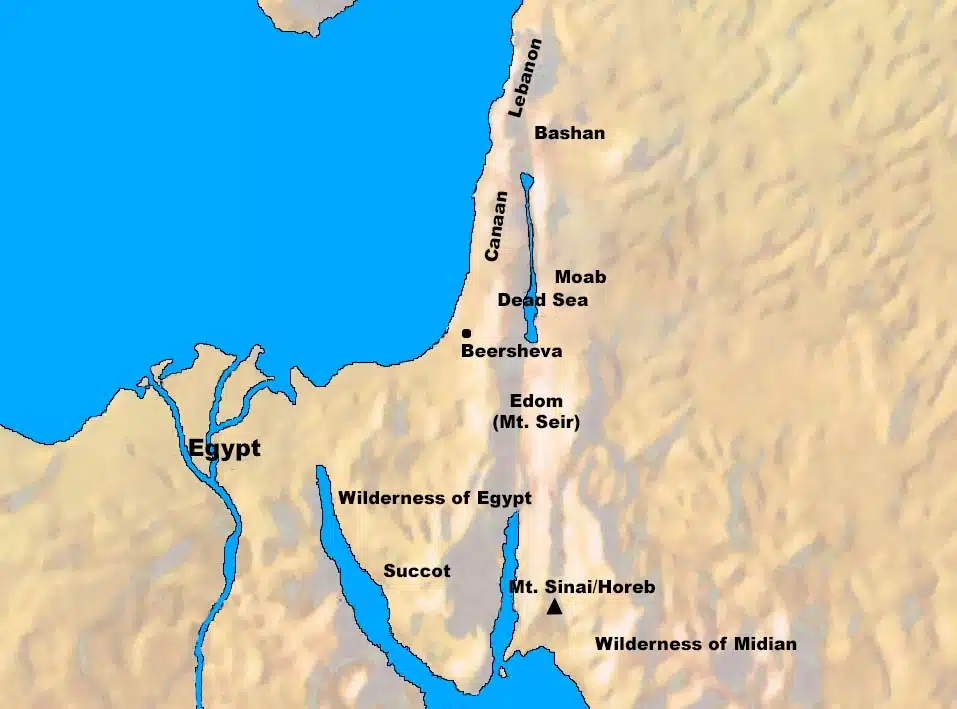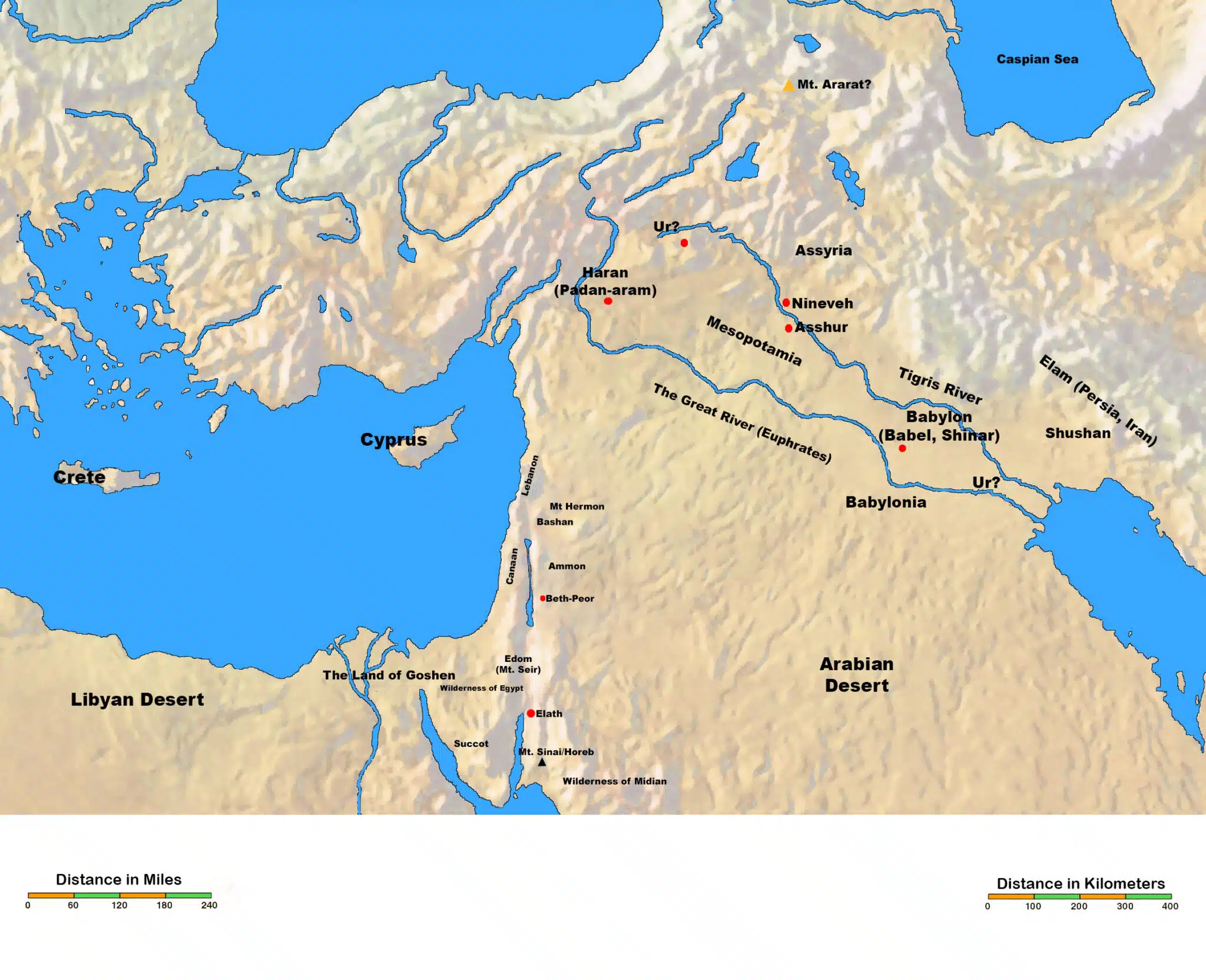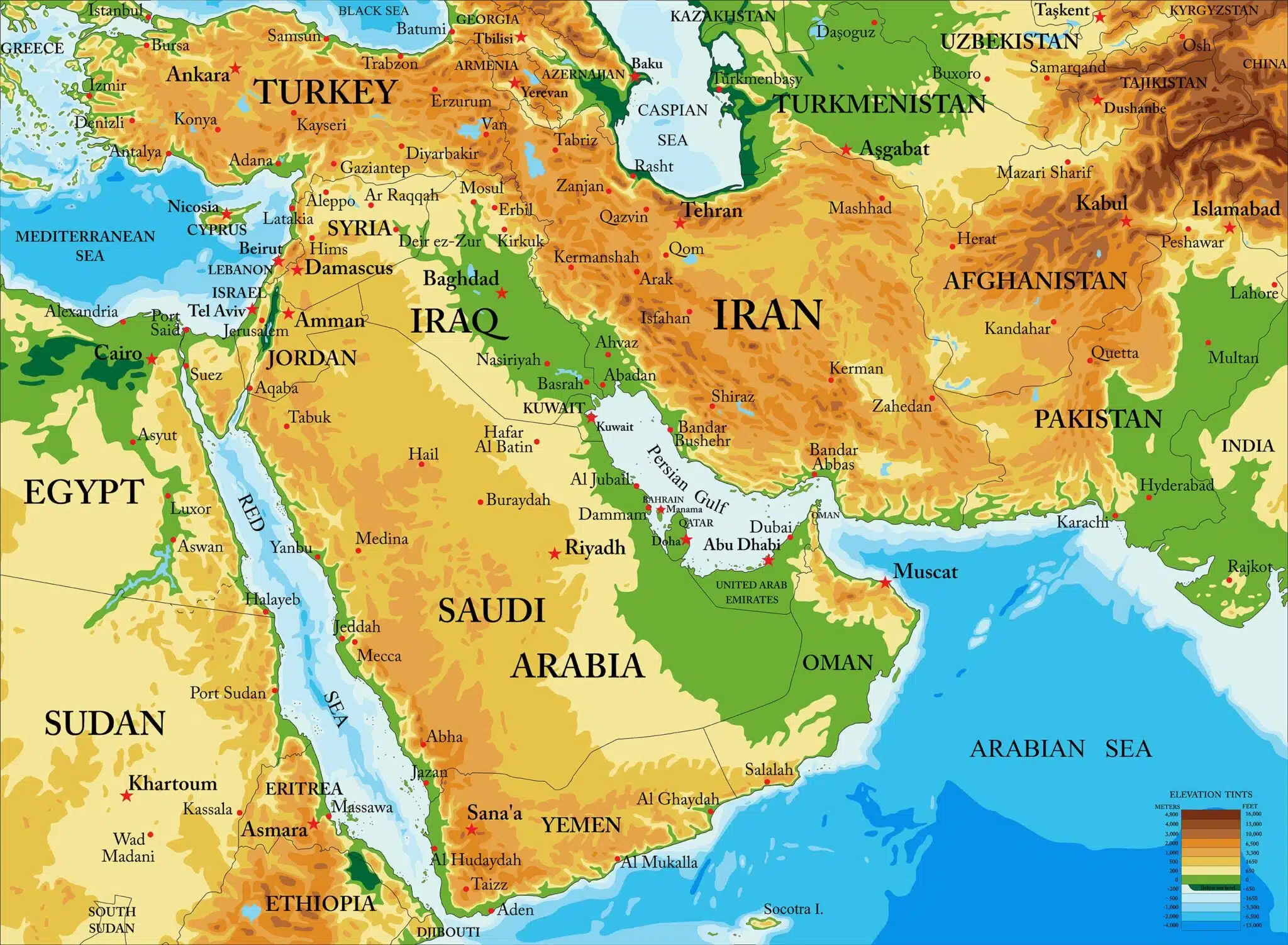Abraham complains that Abimelech’s men have taken over his well. Abimelech claims he had not heard of this well until today. Abraham sets apart seven lambs for Abimelech to give the well rights back to him.
As Abraham and King Abimelech of Gerar are swearing oaths of loyalty to one another, Abraham addresses a problem he has with Abimelech’s men.He complained to Abimelech about the well of water which the servants of Abimelech had seized. Abimelech and Abraham had entered a covenant based on Abimelech’s purported kindness. So immediately Abraham offers a complaint; the alleged kindness is lacking. Abraham tells Abimelech that his men unlawfully confiscated a well of water that Abraham had dug for his livestock. Without access to water for his herds, Abraham might not be able to dwell in the land.
Genesis 26:15,18 indicates that Abraham had dug several wells. Wells are necessary for survival in arid regions like Gerar, as seen earlier when Hagar feared she and her son would die in the wilderness without water (v.15).
Abimelech responds that he does not know who has done this thing. This complaint was news to him, because Abraham did not tell him of it before, nor did he hear of it until that day.
Although it was Abimelech who initiated the covenant with Abraham, it is Abraham who presents a gift of sheep and oxen to ratify the covenant. The giving of gifts is a means of opening negotiations and diplomacy. Abraham’s gifts to Abimelech secured his legal right to dwell peaceably in the land and to claim ownership of the well. They also reinforce his alliance with Abimelech.After Abraham gives him the livestock, the two of them made a covenant. Abraham apparently believes Abimelech that he knew nothing about his servants seizing the well that Abraham had dug. Accordingly, he gives Abimelech sheep and oxen to seal a covenant between them concerning this well (and perhaps the entire “deal”). It is possible that these animals were sacrificed as a sign or seal of the covenant (cf. Genesis 15:9-10).
In giving Abimelech the livestock gift, Abraham does a thing that is curious to Abimelech. He sets seven ewe lambs of the flock by themselves apart from the others.
Abraham’s actions are not self-explanatory, so Abimelech asks for clarification, What do these seven ewe lambs mean?
Abraham answers him, You shall take these seven ewe lambs from my hand so that it may be a witness to me, that I dug this well.
Abraham clarifies that the gift of the lambs provide specific testimony that Abraham dug this well. Abraham gives Abimelech seven female (ewe) lambs as a witness of the fact that Abraham had dug the well and was the legitimate owner of the well. The ewe lambs were from his hand, and delivered to Abimelech, so they constituted proof of the agreement. It was common in the ancient world for agreements to have witnesses. By accepting the seven ewe lambs Abimelech publicly releases his rights to the well and acknowledges Abraham’s ownership of it. By providing the animals, Abraham displays his wealth and strength in the bargaining position.
Biblical Text
25 But Abraham complained to Abimelech because of the well of water which the servants of Abimelech had seized. 26 And Abimelech said, “I do not know who has done this thing; you did not tell me, nor did I hear of it until today.” 27 Abraham took sheep and oxen and gave them to Abimelech, and the two of them made a covenant. 28 Then Abraham set seven ewe lambs of the flock by themselves. 29 Abimelech said to Abraham, “What do these seven ewe lambs mean, which you have set by themselves?” 30 He said, “You shall take these seven ewe lambs from my hand so that it may be a witness to me, that I dug this well.”
Check out our other commentaries:
-
Hebrews 9:23-28 meaning
Christ’s sacrifice was better than any previous sacrifices: He offered it in the presence of God, the blood of the sinless Son was offered, and...... -
Matthew 11:10-15 meaning
Jesus continues His affirmation of John the Baptizer and his role as the forerunner to the Messiah. By extension Jesus is also testifying that He...... -
Luke 9:1-3 meaning
Jesus sends out the twelve disciples...... -
Ecclesiastes 8:16-17 meaning
Solomon reinforces the truth that full understanding is beyond human grasp. We can see and enjoy the work of God, but we cannot fully comprehend...... -
Matthew 9:35-38 meaning
Jesus feels compassion for the people of Galilee. He tells His disciples that the harvest for the gospel is bountiful, but there are few workers.......





